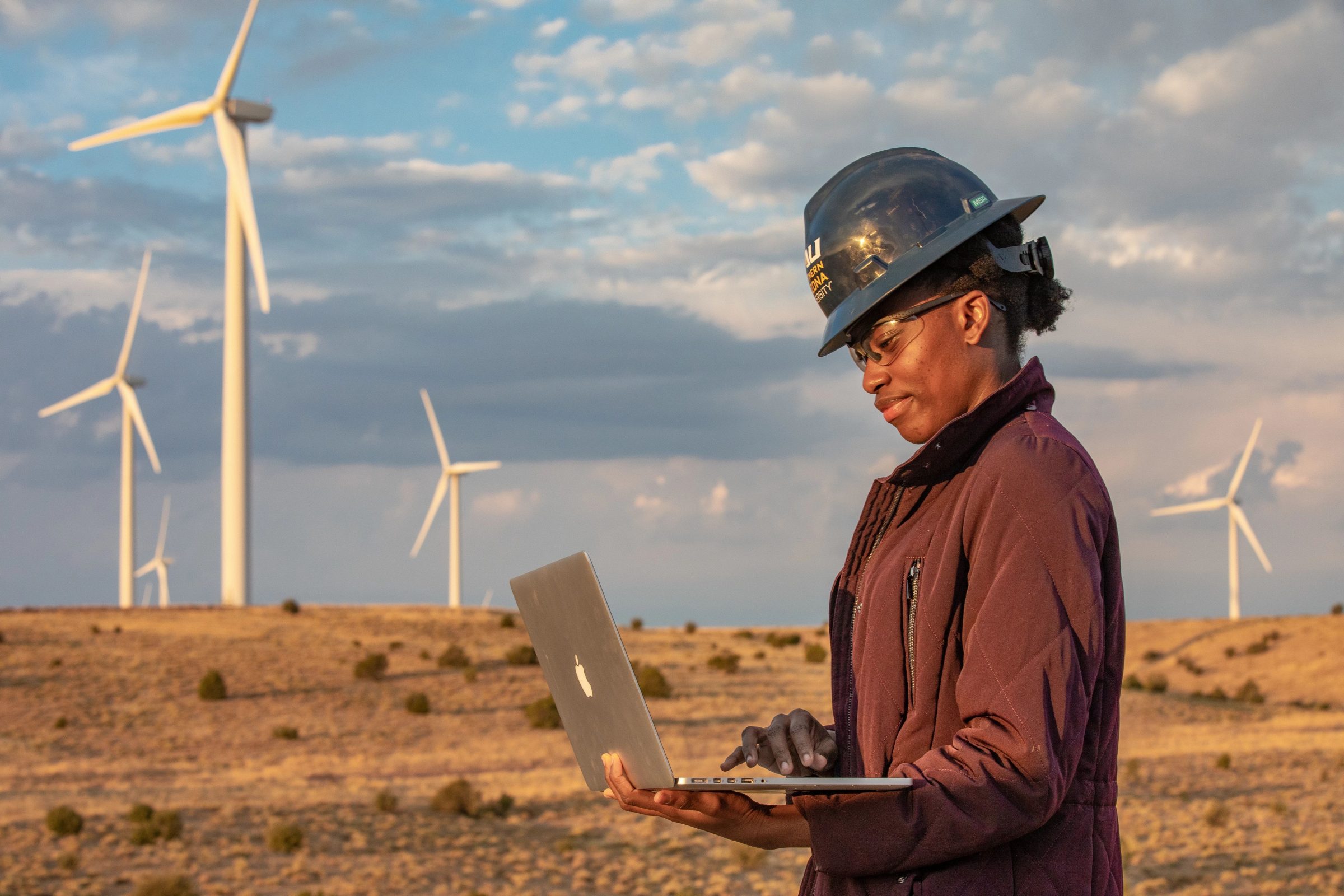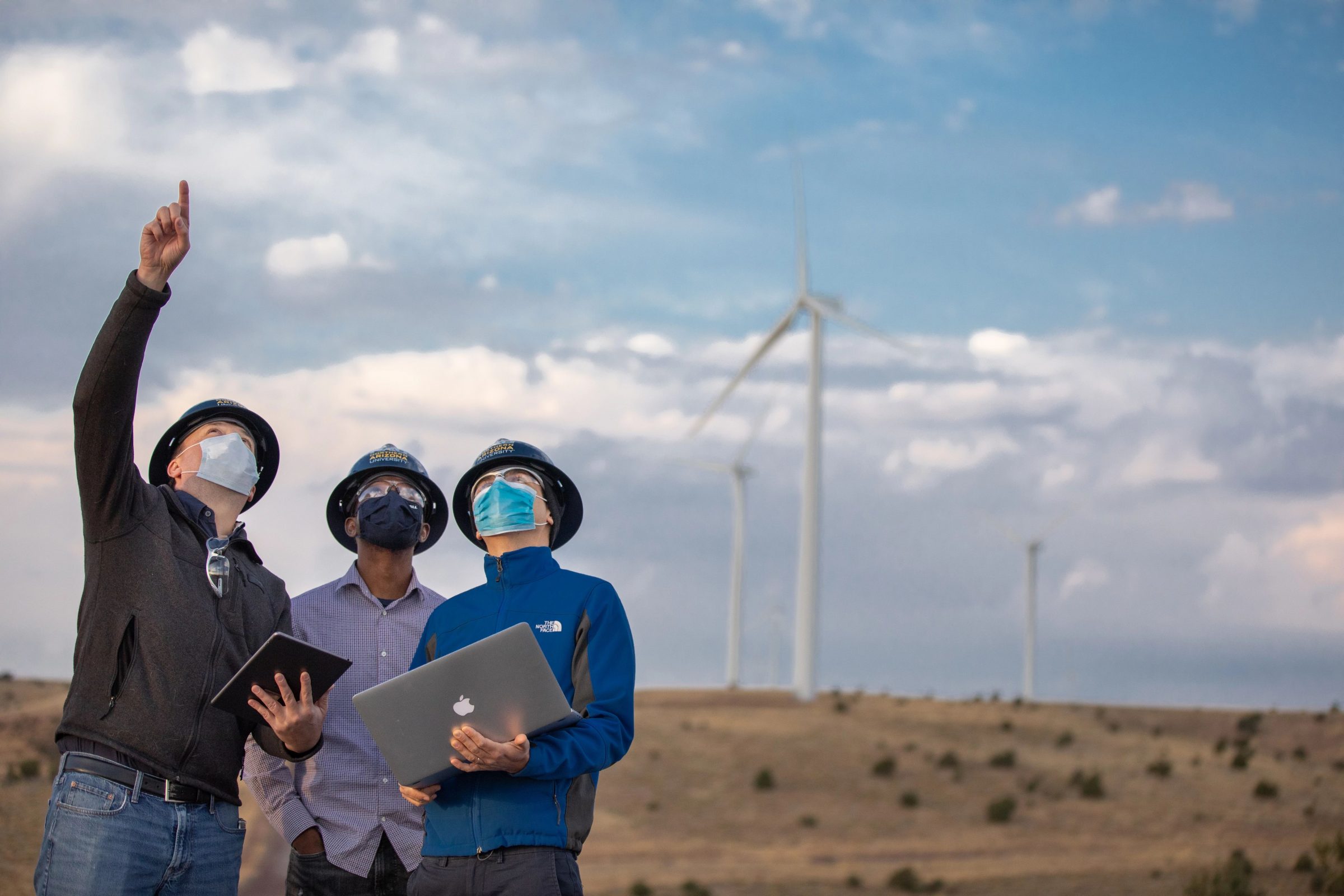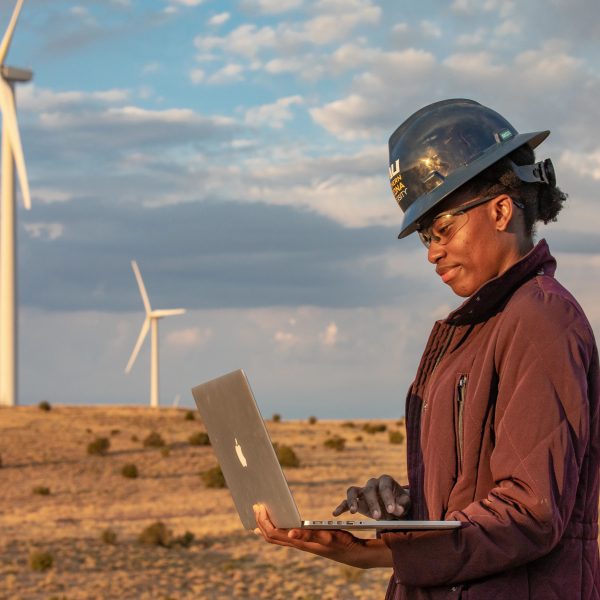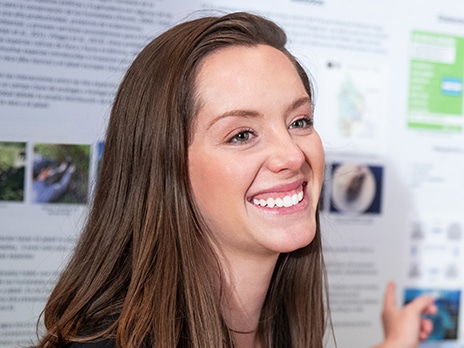
Our future depends on renewable energy, and the world needs engineers to build toward a better tomorrow.
This was the realization that drove NAU student Samirah Gnangbe to focus her career on engineering clean energy. Gnangbe is an international student from the Republic of Côte d’Ivoire, also known as Ivory Coast. When she learned about the relationship between fossil fuels and climate change, she began to see the ways her home is vulnerable.
“In my country we heavily rely on nonrenewable energy resources, like coal, natural gas, or offshore oil,” she says. “Not only do we experience air pollution, which affects the health of our population, but more than half of the population does not have access to energy.”
Determined to be part of the solution, Gnangbe sought an education that could provide the foundation for a career in clean, sustainable energy. She looked for universities that were actively engaged in energy research, and she found NAU.
Between the university’s Clean Energy Research and Education initiatives and offerings like the Undergraduate Wind Energy Certificate, NAU stood out as a top choice to Gnangbe. The final push she needed came with encouragement from Dr. Thomas Acker, an NAU mechanical engineering professor who was leading an international effort to advance renewable energy. Gnangbe graduated from NAU in May 2022 with a Bachelor of Science in Mechanical Engineering. She is currently working on her Master of Science in Mechanical Engineering at Iowa State University, where she is a Teaching Assistant in the Heat Transfer Laboratory.
“I’m really interested in research, so I’ll go for a PhD,” she says. “I want to become an entrepreneur as well, to have my own company. I’m really hoping I can go back to my country and bring back what I’ve learned here.”
Acker recently retired from NAU, and now serves as Senior Principal Research Engineer for the Salt River Project’s Innovation and Development Department, where he helps the organization decarbonize and navigate the ongoing energy transition.
NAU’s clean energy research and education initiatives
NAU energy educators work across campus to engage students in thinking about, and finding solutions for, our future energy needs. The 15-credit undergraduate certificate in Wind Energy, for example, prepares students for professional careers in the wind industry and in wind energy research and development. Students in engineering, the physical sciences, or math have the opportunity to learn how to analyze and design wind turbine mechanical, electrical, and control systems. They also learn about wind resource assessment and wind power plant design.

NAU participates in a wide range of research encompassing the major renewable energy technologies and issues.
-
Energy policy: Energy experts play an active role in the dialogue about energy issues on the local, regional, and national level. NAU researchers are looking at how renewable energy policy drives project development and influences economic health in Arizona and beyond.
-
Wind: NAU is a regional and national leader in wind energy research, with projects that reach internationally. Faculty researchers provide wind maps and data for Arizona; maintain wind resource assessment capabilities; and perform research related to grid integration of wind power, wind resource modeling, and wind energy economics and policy.
-
Solar: Researchers focus on grid integration and interconnection of solar electricity, as well as solar thermal and residential solar systems.
-
Hydropower: NAU experts are researching the crucial role that hydropower can play in renewable energy deployment.







